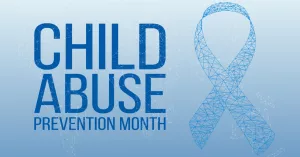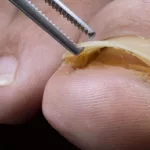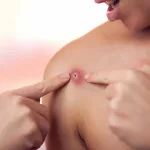Have you ever stuck your toddler sticking their tongue out and puzzled what’s happening? Maybe it’s in the course of a feeding, whilst they’re playing, or even just immediately—and it’s got you curious. My pal Addison had the same question while her little guy, Mason, started doing it nonstop. She wasn’t certain if it changed into just a adorable quirk or some thing she should fear about. Sound familiar? Well, you’re within the proper place. Let’s dive into this together and determine out why toddlers stick their tongues out, what it method, and what you may do about it.
This isn’t going to be some dry, technical rundown. Think of it like a talk over coffee—I’ll stroll you thru the reasons at the back of this behavior, whilst it’s definitely normal (spoiler: it typically is), and while it is probably really worth a short test-in along with your pediatrician. We’ll cover the whole thing from reflexes to communique to teething, all in a manner that’s easy to digest and even a touch fun. Plus, I’ve were given some strong studies to lower back it up, so you can sense assured about what’s happening with your little one. Ready? Let’s get commenced!
Understanding Why Babies Stick Their Tongues Out
Babies are complete of surprises, aren’t they? One minute they’re laughing, the subsequent they’re sticking their tongue out love it’s their new favorite trick. If your infant’s doing this, don’t strain—it’s generally just a part of being a toddler. There are some most important reasons behind it, and all of them tie returned to how babies grow and discover the sector. Let’s damage it down.
Natural Reflexes: The Tongue-Thrust Reflex Explained
Right from the moment they’re born, infants come prepared with a few quite cool instincts referred to as reflexes. One of the huge ones is the tongue-thrust reflex (occasionally known as the extrusion reflex). Picture this: whilst some thing—like a nipple, a bottle, or even your finger—touches your baby’s lips or tongue, they mechanically push their tongue forward. It’s now not them being picky; it’s simply how they’re stressed.
Why does this show up? It’s all approximately feeding. That tongue movement allows them latch on and get milk, whether or not they’re breastfeeding or bottle-feeding. Pretty smart, proper? According to Medical News Today, this reflex kicks in at delivery and normally sticks around till they’re approximately 4 to 6 months old. After that, it fades away as they get ready for brand spanking new adventures—like consuming mashed peas.
But there’s extra to it than simply feeding. This reflex also acts like a little safety defend. If some thing random, like a toy or a chunk of lint, ends up of their mouth, they’ll push it out as opposed to swallowing it. So, in case your infant’s sticking their tongue out a lot in those early months, it may just be this reflex doing its task.
Why Does This Reflex Matter to You?
Here’s in which it gets practical. Ever tried giving your toddler a spoonful of puree most effective to have them shove it right returned out? That’s the tongue-thrust reflex in movement. It’s why specialists say to keep off on solids until around 6 months, whilst this reflex typically disappears. If you bounce the gun, feeding can develop into a messy battle—and now not the amusing type. Waiting a chunk offers your toddler’s mouth a threat to catch up with their growing urge for food.
Communication and Expression: What’s Your Baby Saying?

Babies won’t have phrases yet, however they’re champs at sending alerts. Sticking their tongue out can be certainly one of their go-to movements for letting you already know what’s up. It’s like their version of texting—brief, candy, and to the factor. Here’s what it would imply in exclusive situations.
Hunger Cues
Is your toddler sticking their tongue out and turning their head closer to you, perhaps even starting their mouth a bit? That’s a classic hunger cue. They may smack their lips or suck on their palms—like they’re announcing, “Hey, I’m ravenous over here!” If it’s near feeding time and also you see this, it’s probably their manner of nudging you in the direction of the milk stash.
Fullness Cues
On the turn side, if they’re sticking their tongue out and pushing away the bottle or turning their head, they may be telling you they’re done. It’s their polite “no thank you” before they are able to say it out loud. Tuning into this could help you keep away from overfeeding, which continues anyone happier.
Teething Discomfort
Teething’s a rough gig for babies. When those gums start aching—generally around four to 6 months—they may stick their tongue out to ease the strain. It’s not a great repair, however it’s some thing. You may also spot them gnawing on their palms or drooling like crazy. If your toddler’s sticking their tongue out and appears more officious than regular, teething can be the culprit.
Concentration
Ever be aware how you may stick your tongue out when you’re excellent centered—like threading a needle or nailing a tricky puzzle? Babies do it too! If your toddler’s running tough to grab a toy or parent out the way to roll over, that tongue might come out as they zero in. It’s lovable proof they’re putting in a few critical attempt.
Imitation
Babies are copycats—it’s how they study. If you stick your tongue out at them (go ahead, try it), they may mimic you right lower back. It’s a amusing recreation and a candy way to bond. Studies even show newborns can begin imitating faces inside days of being born, so don’t be amazed in case your infant picks up this trick early.
How Do You Figure Out What’s What?
Okay, so your toddler’s sticking their tongue out—how do you realize what it manner? Look at the context. If it’s feeding time and that they’re rooting, they’re in all likelihood hungry. If they’re grumpy and chewing on the whole thing, teething’s a safe guess. Playing with a toy? Maybe they’re concentrating. And in case you just made a silly face, properly, they’re probable simply playing along. You’ll get the grasp of it—it’s like decoding their own little language.
When Should You Worry About Tongue Sticking?

Most of the time, a toddler sticking their tongue out is no massive deal—simply some other cute component they do. But I get it: as a determine, you’re usually thinking if there’s some thing you must be watching for. The properly news? It’s commonly not anything to stress about. Still, there are some situations in which it is probably really worth a better appearance. Let’s pass over them so that you recognize what’s everyday and what’s no longer.
Persistent Tongue Sticking After 6 Months
By round 6 months, that tongue-thrust reflex have to be winding down. If your baby’s nevertheless sticking their tongue out a ton after that—love it’s a regular addiction—it’s now not routinely a trouble, but it’s well worth mentioning for your pediatrician. Every infant’s one of a kind, and some take a touch longer to move beyond this phase, but a quick check can ease your thoughts.
Other Signs to Keep an Eye On
It’s not simply the tongue sticking by way of itself—it’s what else is going on. Here are some matters that could raise a flag:
- Trouble feeding: If your baby struggles to swallow or can’t preserve milk of their mouth, that’s something to notice.
- Extra drooling: A little drool’s regular (hiya, teething!), however if it’s nonstop and over-the-top, it could suggest greater.
- Weight issues: If they’re no longer gaining weight like they should, feeding issues is probably tied in.
- Development delays: Missing milestones—like not sitting up or babbling—ought to sign something broader.
If any of those sound acquainted, don’t panic—just jot them down on your next medical doctor visit.
Could It Be a Medical Condition?
In rare instances, consistent tongue sticking may hint at some thing scientific. Here’s a rundown of what can be at the back of it—keeping in mind these are quite uncommon:
- Down syndrome: Babies with Down syndrome would possibly have a bigger tongue or decrease muscle tone, making it stick out greater.
- Cerebral palsy: This influences muscle manage, so the tongue may protrude as a end result.
- Macroglossia: Fancy phrase for a larger-than-normal tongue. If it doesn’t suit nicely in the mouth, it could poke out. Sometimes tied to situations like hypothyroidism.
- Micrognathia: A smaller jaw can crowd the tongue, pushing it forward. It’s linked to rare syndromes like Pierre Robin Sequence.
Before you begin Googling and stressing, allow me reassure you: these are outliers. The sizeable majority of toddlers sticking their tongues out are just great. But if something feels off, your pediatrician’s your fine aid—they can test it out and will let you understand what’s what.
Red Flags to Watch For
So, when’s it time to call the document? Here are some unique signs and symptoms:
- Breathing seems tough or they’re making weird noises.
- They choke a lot at some point of feeds or can’t keep food down.
- Other milestones—like rolling over—aren’t occurring on course.
Again, these are rare, however if you’re seeing them along the tongue sticking, it’s well worth a talk along with your pediatrician. Better secure than sorry, proper?
What Can You Do About It?

Alright, now that we’ve protected the “why” and the “whilst to worry,” permit’s speak approximately what you can do while your toddler’s sticking their tongue out. Spoiler: most of the time, it’s pretty much sitting back and enjoying the display. But there are a few approaches you may support them too. Here’s the scoop.
For Normal Behavior: Chill and Snap a Pic
If your infant’s sticking their tongue out due to reflexes or communication, there’s not anything you want to repair. It’s just them being their cute, quirky selves. Seriously, grasp your smartphone and take a image—those moments fly by way of, and also you’ll need to look again on them after they’re running round talking your ear off. No intervention required—just soak it in!
Helping Them Grow: Development Tips
Even if the tongue sticking’s normal, you could nonetheless set your child up for achievement as they hit new milestones. Here’s a way to nudge their improvement along in a fun, clean way.
Introducing Solids the Smart Way
Timing is everything with solids. Since that tongue-thrust reflex could make early tries a multitude, wait until round 6 months whilst it’s commonly long past. Start with some thing clean—like pureed sweet potato or avocado—and see how they do. If your baby’s nonetheless sticking their tongue out and pushing meals returned, they could need a little more time. No rush—try once more in every week or so. Once they’re equipped, mix it up with chunkier textures to assist them grasp chewing.
Pro tip: Keep it relaxed. Feeding’s a getting to know curve for each of you, so don’t pressure if half the spoon ends up on their bib. It’s all part of the system!
Keeping That Mouth Healthy
Good oral habits begin early—even before enamel show up. Here’s what you may do:
- Gum TLC: After feeds, wipe their gums with a tender, damp fabric. It clears out milk and feels fine for them.
- First tooth, first brush: When teeth pop in, seize a infant toothbrush (gentle bristles most effective) and start brushing with just water. Add a tiny dab of fluoride toothpaste later—suppose rice-grain length.
- No bottle at bedtime: Skip setting them to sleep with a bottle. Milk sitting on their teeth in a single day can lead to decay down the road.
These little steps build a basis for a wholesome smile. Check out Colgate’s manual for extra infant oral care ideas.
When to Call the Pediatrician
Not certain if your infant’s tongue sticking is ordinary? If it’s bugging you—or if you spot any of those crimson flags we pointed out—deliver your pediatrician a hoop. They’re there to help, whether or not it’s a short “yep, all correct” or a deeper appearance. You’re no longer overreacting; you’re simply being a splendid figure.
Wrapping It Up: Enjoy the Ride
So, why do toddlers stick their tongues out? Most of the time, it’s just them doing their child factor—whether it’s a reflex, a hunger cue, or a teething workaround. It usually types itself out by using 6 months, leaving you with a funny reminiscence to inform them about later. But if it sticks round too lengthy or comes with other bizarre stuff—like feeding struggles or heaps of drooling—don’t hesitate to check in together with your medical doctor. Peace of thoughts’s well worth it.
For now, soak up those goofy, tongue-out moments. Your baby’s growing rapid, and earlier than you are aware of it, they’ll be chatting away as opposed to sticking their tongue out to get your attention. You’ve got this, and they’re fortunate to have you figuring all of it out with them!
Got extra questions? Your pediatrician’s continually a call away. Happy parenting—you’re doing excellent!

























Leave a Reply
You must be logged in to post a comment.